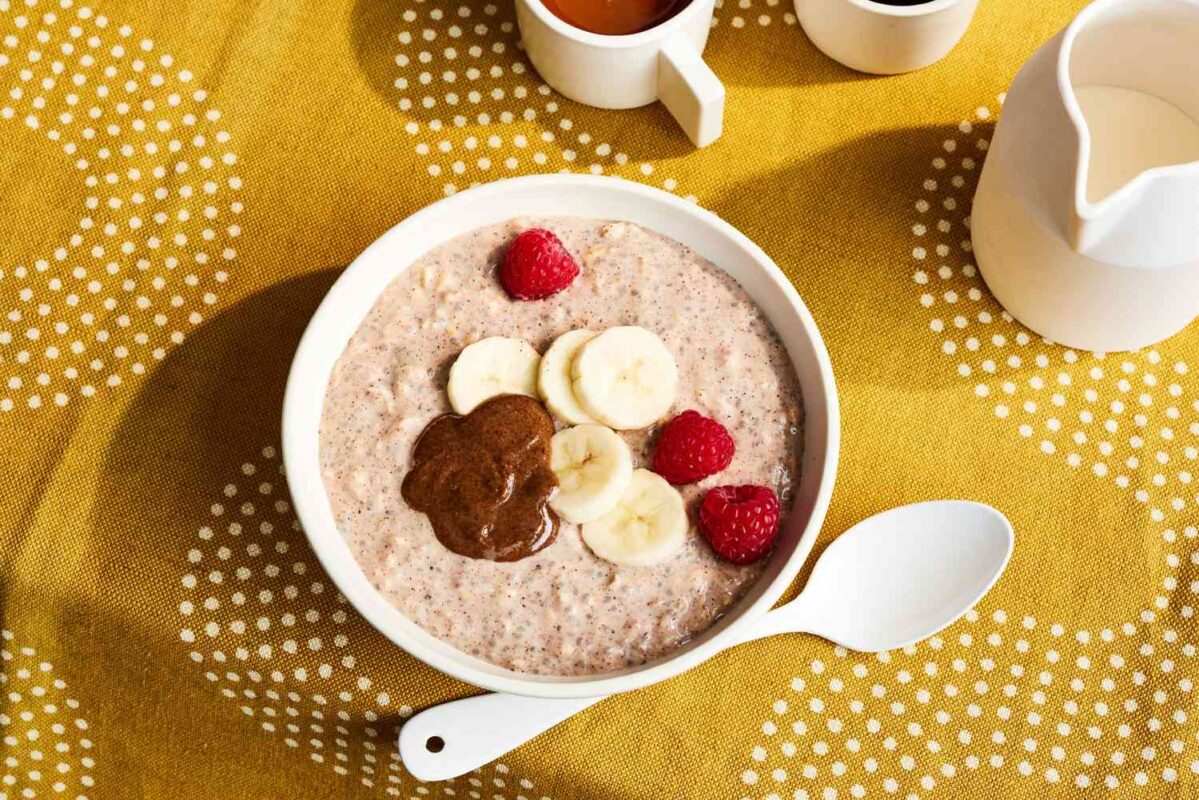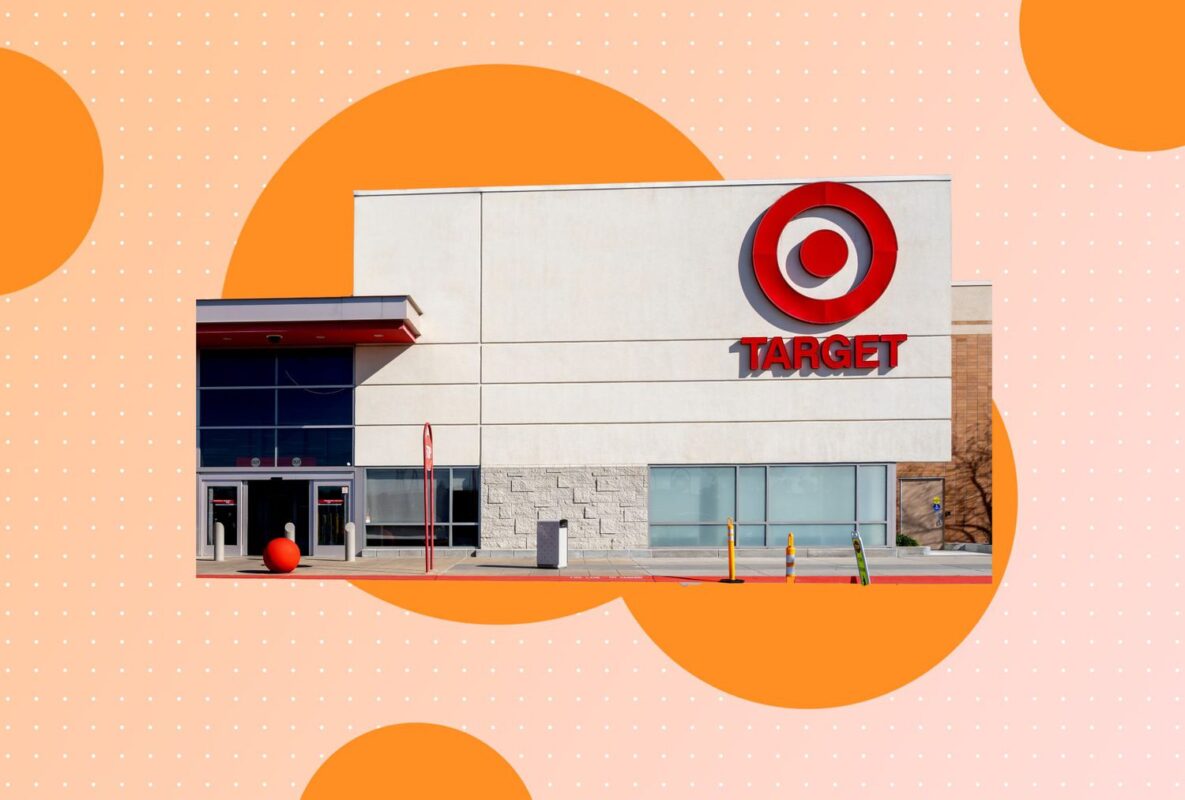Blog
The Best High-Protein Drinks, According to a Dietitian

- Protein promotes satiety and helps build muscle, antibodies and hormones.
- For extra protein, a dietitian leans on quick, convenient, high-protein drinks.
- Some of her favorites are skim milk, bone broth, and yogurt and kefir smoothies.
As a dietitian, I know how important protein is for building muscle and promoting satiety. Peek inside my fridge, and you’ll spot an entire lineup of high-protein beverages. I rely on them for everything from smoothies and dressings to soups (not to mention sipping from a glass or even straight from the container). They’re also essential on hectic days when meals and post-workout recovery fuel get pushed to the bottom of my to-do list.
To avoid turning a bag of pretzels into lunch, I always recommend keeping a few drinkable high-protein picks on hand. Curious to hear what I’ve got stocked? Keep reading to discover my favorite high-protein sips.
1. Chobani High-Protein Greek Yogurt Drink
Courtesy of Brand
Chobani nonfat plain Greek yogurt is a core staple in my fridge. It’s my daily go-to for bumping up the protein in breakfast bowls, whether I’m having chia pudding, a fruit parfait or a smoothie bowl. I also love to whip it into salad dressings, marinades and soups. So, I was thrilled to spot their new line of Chobani High-Protein Greek Yogurt Drinks during a recent grocery run. They make fueling my morning yogurt habit even easier.
These protein-packed drinks come in three different protein levels, with 15, 20 or a whopping 30 grams of protein per serving. But the best part? There are no added sugars or protein powders. You will find low-fat Greek yogurt and real fruit. Instead of added sugars, there are some stevia and monk fruit extracts for a touch of sweetness. With at least 15% of the Daily Value of calcium per bottle, they’re great for your bones. They’re also an excellent source of vitamin B12—hello, energy! Plus, they provide a boost of gut-friendly probiotics.
Nutrition info for 1 (14-oz) bottle (Mango flavor): 220 calories, 4 g total fat, 2.5 g saturated fat, 25 mg cholesterol, 17 g carbohydrates, <1 g fiber, 12 g sugar (0 g added sugars), 30 g protein, 150 mg sodium
2. Lifeway Kefir Probiotic Smoothie + Collagen
Courtesy of Brand
Tangy, creamy and packed with billions of probiotics, kefir is a fermented milk drink that has been one of my lifelong staples. As a creature of habit, I always toss a bottle of plain Lifeway Kefir into my shopping cart. But when their new line of Lifeway Kefir Probiotic Smoothie + Collagen hit shelves, I had to give it a try.
This twist on their classic kefir delivers an extra protein boost (13 grams per cup) thanks to added collagen. Collagen is a protein that may support healthy skin, making it a popular addition to many beauty routines. It may also promote joint and bone health., Like yogurt, kefir is rich in gut-friendly probiotics that can support digestion, immunity and more. It’s also an excellent source of bone-building calcium and is fortified with vitamin A. Some brands, like Lifeway, also fortify their kefir with vitamin D.
It comes in fun flavors like Matcha Latte (my personal fave!), Berry Blast, Tropical Fruit and Plain (perfect for savory recipes). Sip it straight, whip it into a smoothie or swirl it into chilled soups like gazpacho for a creamy, probiotic, protein-packed twist.
Nutrition info for 1 cup (Matcha Latte flavor): 130 calories, 2 g total fat, 1.5 g saturated fat, 15 mg cholesterol, 16 g carbohydrates, 0 g fiber, 15 g sugar (5 g added sugars), 13 g protein, 100 mg sodium
3. Swanson Sipping Chicken Bone Broth Cup
Courtesy of Brand
Sometimes, you just crave something warm and savory. That’s where Swanson Sipping Chicken Bone Broth Cup comes in. Whether you’re fighting the sniffles or are depleted after a sweaty workout, bone broth is a soothing, low-calorie way to replenish.
Each ready-to-drink cup contains 10 grams of protein and is also naturally rich in potassium and collagen. It’s made with real, whole-food ingredients, including chicken bone broth, veggies and herbs.
It also comes in a convenient, single-serve 10.75-ounce cup. So, it’s perfect when you’re on the go, at the office or just not in the mood to dirty up a bowl. While this version is made for sipping, it’s just as versatile in the kitchen. Use it in soups, stews, chili or even grains for an added protein and flavor boost.
Each serving contains 460 mg of sodium, so if you’re watching your sodium, keep serving sizes small (think half a container rather than the whole thing).
Nutrition info for 1 (10.75-oz.) container (Chicken flavor): 50 calories, 0.5 g total fat, 0 g saturated fat, 0 mg cholesterol, 2 g carbohydrates, 0 g fiber, <1 g sugar (0 g added sugars), 10 g protein, 460 mg sodium
4. Naked Protein Smoothies
Courtesy of Brand
As a frequent traveler, I know how tough it can be to get in all your fruits and veggies when you’re on the road. That’s why I often grab Naked Protein Smoothies. They’re readily available at airport terminals or rest stops. Plus, their vibrant colors make them easy to spot.
One of my favorites is the Double Berry flavor. It offers 20 grams of protein per bottle, plus the nutrition of apple, banana, strawberry and blueberry juices and purees. This smoothie also contains 4 grams of digestion-supporting fiber, 10% of your daily potassium and three times the DV for vitamin C. With zero added sugars, all of its natural sweetness comes from fruit.
However, with 310 calories per bottle, it may be best to use this smoothie as an on-the-go meal replacement when rushing to an early-morning flight or post-workout. But if you need extra calories, you can always pair it with a salad, soup and sandwich for a balanced meal.
Nutrition info for 1 (15.2-oz.) bottle (Double Berry flavor): 310 calories, 1.5 g total fat, 0 g saturated fat, 0 mg cholesterol, 54 g carbohydrates, 4 g fiber, 42 g sugar (0 g added sugars), 20 g protein, 220 mg sodium
5. Skim Milk
Getty Images
If I had to name my No. 1 OG high-protein beverage, it would be skim milk. Whether you like to sip a cold glass with your afternoon snack or have a warm mug before bed, milk delivers a serious protein punch. One cup provides 8 grams of complete protein, including all nine of the essential amino acids your body needs for optimal protein synthesis.
Milk is also rich in important nutrients like calcium, potassium, iodine, phosphorus, B vitamins and more. I love that it’s made with just one main ingredient: milk (it also contains added vitamins A and D to prevent nutrient deficiencies). That’s it. No added sugars, syrups, salt, thickeners or fillers.
If you’re lactose intolerant, you can always turn to lactose-free milk. It contains the exact same nutrients, plus the enzyme lactase to help you break down its lactose more easily. Another bonus? It’s one of the most affordable high-protein beverages out there.
Nutrition info for 1 cup: 84 calories, 0 g total fat, 0 g saturated fat, 7 mg cholesterol, 12 g carbohydrates, 0 g fiber, 12 g sugar (0 g added sugars), 8 g protein, 101 mg sodium
What to Look For in High-Protein Drinks
Not all protein drinks are created equal. Some are packed with added sugars, while others may have hidden preservatives or additives. While these drinks can be a super-convenient and portable source of nutrition, they shouldn’t replace whole foods like fruits, veggies, whole grains or lean proteins in your diet.
Here’s what to keep in mind when picking one out:
- Protein Content: The amount of protein you need depends on several factors, such as your age, sex, activity level and overall diet. If you’re active or don’t get enough protein at meals, you may benefit from a drink with 30 grams of protein. But if you only need a snack, one with 10 to 12 grams may do the trick.
- Added Sugars: When checking labels, it’s easy to zero in on total sugars. But added sugars are much more important. For instance, dairy-based drinks contain naturally occurring sugars like lactose, which can make the total sugar count look high. However, these naturally occurring sugars are nothing to worry about. What you want to watch out for are added sweeteners like cane sugar, corn syrup and even honey, which offer no nutritional value.
- Serving Size: It’s easy to assume an entire bottle is a single serving. Yet, some drinks pack two or more servings in a single container, bottle or can. If you’re not reading the label closely, you could end up consuming double (or more!) the calories, sugar and—in some cases—fat than you planned. So, be sure to check the serving size.
Our Expert Take
As a dietitian, I lean heavily on high-protein drinks. My favorites include Chobani High-Protein Greek Yogurt Drink, Lifeway Kefir Probiotic Smoothie + Collagen, Swanson Sipping Chicken Bone Broth, Naked Protein Smoothies and classic skim milk. Considering the wealth of options on store shelves, finding a nutritious, high-protein drink can seem daunting. To make it easy, look at the protein content, added sugars and the serving size. As helpful as these drinks can be for giving you the protein you need, think of them as an addition to—rather than a replacement for—real whole foods. Then, load your fridge for quick, convenient, high-protein sipping!












